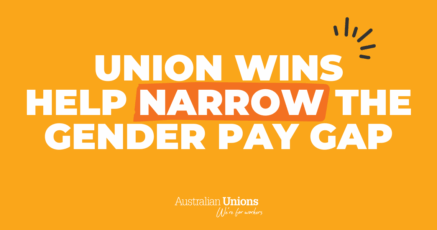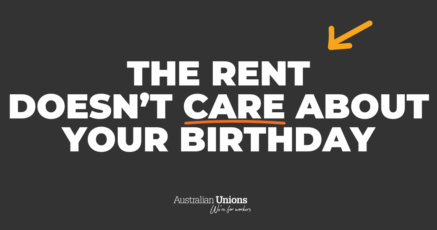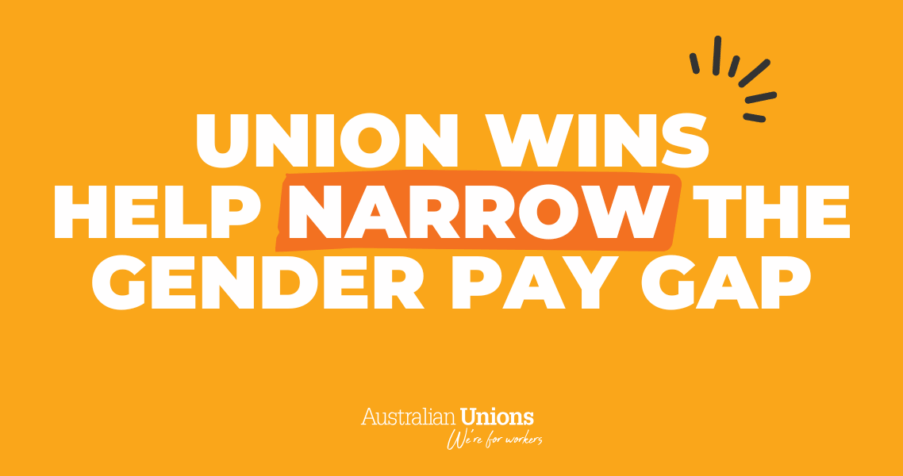Speech delivered by ACTU President Michele O’Neil
Parliament House Canberra
1 September 2022
I want to begin by acknowledging the traditional owners of the land we are meeting on today, the Ngunnawal people and pay all my respect to their elders past and present. It always was and it always will be Aboriginal land.
In 1983, Prime Minister Bob Hawke held an Economic Summit.
There were 97 participants.
One of them was a woman. Trail blazer Senator Susan Ryan.
Every single one of the business delegates were men.
Every single one of the union delegates were men.
Not only is this summit unrecognisable from the one held 39 years ago so is the world of work.
In 1983 women’s workforce participation sat at 45%.
Today its 62.8% (for men its 70.8%)
That’s a big change but it masks how poorly we sit compared to other OECD countries and how glacially slow is our progress towards equity.
Women in Australia are lower paid, have less super, work fewer hours, are more likely to be casual or part time, have unpredictable hours and rosters, are more likely to have to work multiple jobs, less likely to have paid leave, more likely to be discriminated against, harassed and assaulted at work.
If you are a First Nations woman, living with a disability or from a culturally and linguistically diverse background the figures are considerably worse.
A few months ago I met Ruby. She works in residential age care as a carer. Her co-workers told me she was fantastic at her job.
Ruby told me how hard the work was, but how much she loved it.
But this was only Ruby’s first job.
Because she can’t get enough hours or pay to meet the costs of living for her and her kids, she does two other jobs. Ruby is also a disability care worker and works in the hospital as a care assistant.
3 jobs – all underpaid and all undervalued.
3 jobs in the care economy.
Our existing IR laws are clearly failing women.
We have pay equity laws that perversely require you to run an argument to properly value women’s work by identifying a male comparator.
We have a minimum wage decision each year that does not consider what is needed for a living wage.
We have so-called flexible work arrangements which give you the right to ask for work hours that are consistent with care and family responsibilities, but no rights if your employer just says no.
We have a bargaining system designed for large male dominated workplaces, locking women in feminised industries out of the system and leaving them without power to join together with others and negotiate.
Let us be very clear.
Arguments to keep our bargaining system in the past and only enterprise based are arguments to cement women’s low pay for generations to come.
Australia has the second worst parental leave scheme in the developed world.
We have one of the most expensive childcare systems.
We must not let this be our legacy for the next generation.
The Australian union movement wants to work with Government and employers to change this.
We don’t want to settle on a timeline of 100 years to achieve pay equity.
To really tackle inequality we need:
A new simple, fair and, critically, “accessible” collective bargaining system that adds the option of multi-employer or sector bargaining. This will open up collective bargaining for women.
A fairer approach and simpler right to flexible work arrangements in our workplace laws that recognise the importance for all of us of balancing work and care.
A new approach to setting the minimum wage which has at its core the need for a living wage.
Increased paid parental leave to 26 weeks with a path to lift it to 52 weeks by 2030.
Super paid on parental leave.
Early childhood education and care made free and accessible to all. As a first step the announced increases in childcare subsidies should be bought forward to 1 January 2023.
Increasing women’s pay and capacity to work is good for women.
But you know what? – it is good for men, it’s good for our labour market, it’s good for skill shortages, it’s good for workplace culture, it makes workplaces safer and fairer.
It is good for productivity and for living standards.
It is good for our economy.
On every single measure it stacks up.
Halving the participation and pay gap would add $111 billion dollars to our national income.
We shouldn’t be frightened of change.
We should just get on with it.
Cover photo credit: Supplied






SHARE:
We know what respect for working women looks like. Here’s how we make it happen